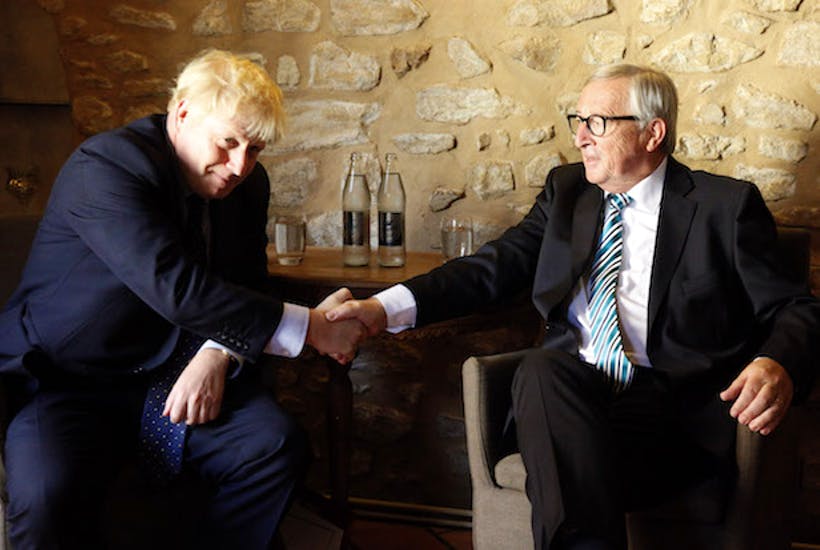Is Boris Johnson approaching a Brexit breakthrough? That’s the question being asked among Conservative Members of Parliament after there appeared to be movement last week from the government and Democratic Unionist party that could help to secure a deal with the European Union. Today the prime minister met with EU Commission president Jean Claude Juncker in Luxembourg to discuss the prospect, over a lunch of chicken oysters and risotto.
On the conclusions of the meeting, a No. 10 spokesman said the pair had agreed to step up discussions and for Michel Barnier and Brexit secretary Stephen Barclay to hold talks on a political level:
‘The leaders agreed that the discussions needed to intensify and that meetings would soon take place on a daily basis. It was agreed that talks should also take place at a political level between Michel Barnier and the Brexit secretary, and conversations would also continue between President Juncker and the prime minister.’
However, a European Commission spokesperson had a somewhat more gloomy readout – pressing that they still had not received from Boris Johnson specific proposals on replacing the backstop:
‘President Juncker recalled that it is the UK’s responsibility to come forward with legally operational solutions that are compatible with the Withdrawal Agreement. President Juncker underlined the commission’s continued willingness and openness to examine whether such proposals meet the objectives of the backstop. Such proposals have not yet been made.’
So, is this real progress or simply both sides attempting to avoid blame for a breakdown for the time being? Agreeing to increase the number of discussions taking place to daily does suggest the EU is interested in finding a solution. However, it is clear from the Commission comments that Juncker sees the responsibility for this as primarily sitting with the UK.
Inside government, there is a view that they have one shot to present concrete proposals to Brussels. It follows that there is a reluctance to do this until they believe they have met all of the tests set by Brussels on alternative arrangements to the backstop. As James Forsyth revealed on Saturday, Barclay has told colleagues they have managed to find a way to avoid infrastructure that undermines the Good Friday Agreement as well as a way to protect the integrity of the EU’s single market. However, where there is still a way to go is how to avoid the need for checks on goods on the island of Ireland. This remains pivotal for breaking the deadlock.
With Johnson also insisting that he has no plans to seek a Brexit delay despite a bill ordering him to do so, there could be another reason that aides see a positive in delaying an unveiling of any specific proposal. If they are able to prove to Juncker that no deal is a real possibility, the Commission could be more likely to compromise in the way Johnson requires EU leaders to in order to agree a deal he can sell back home.
This article was originally published on The Spectator’s UK website.


























